Politics
India mega-zoo in spotlight again over animal acquisitions
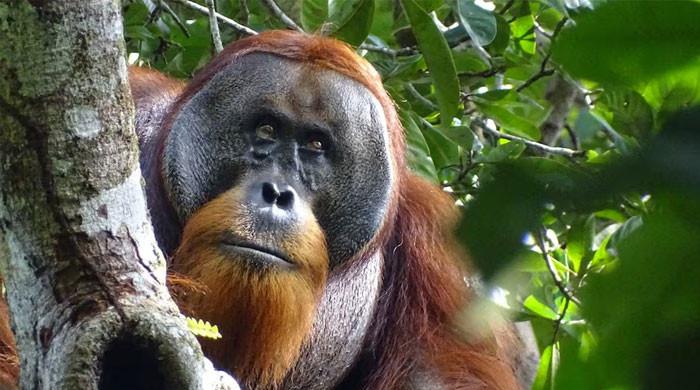
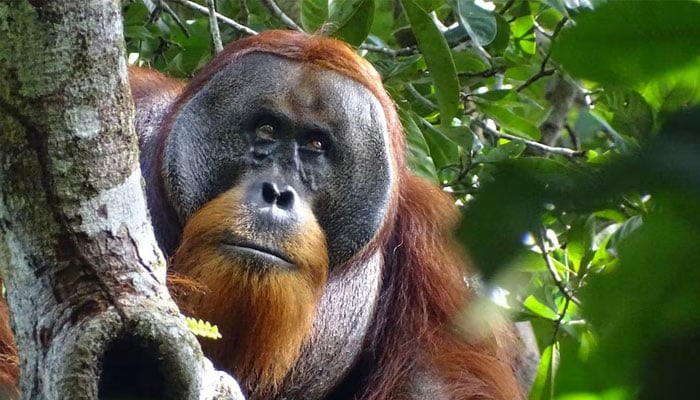
Leading wildlife protection experts have urged India to suspend all imports of the world’s most endangered species, endorsing long-running concerns by conservationists about mass acquisitions by mega-zoo Vantara.
The facility in western Gujarat state, officially known as the Green Zoological Rescue and Rehabilitation Centre, is run by the son of Asia’s richest man.
It has scooped up tens of thousands of animals in recent years, and was subject to an Indian Supreme Court review that cleared it of any wrongdoing.
But experts from the world’s top wildlife watchdog — the secretariat overseeing the Convention on International Trade in Endangered Species of Wild Fauna and Flora (CITES) — have warned Vantara may have imported highly endangered species in violation of international rules.
In a report published ahead of CITES talks this month, they found a “large number of imports… appear to be inconsistent” with rules protecting so-called Appendix I species, the world’s most threatened animals.
They recommended serious reforms to ensure Vantara does “not inadvertently become a driver of illegal harvest of wild animals”.
Vantara and India’s environment ministry did not respond to AFP requests for comment.
Experts have repeatedly sounded the alarm on Vantara’s massive animal intake. The facility claims to have 150,000 animals, though CITES officials said closer to 47,000 were reported during a September visit.
“This report raises more questions than it answers,” said Mark Jones, head of policy at wildlife group Born Free.
“Why the discrepancies in numbers? Why import so many animals from so many species across the world… Who is supplying these animals, and how can we be sure they’re not being traded for profit?”
‘Really, really shocking’
CITES examined a laundry list of allegations involving endangered animals, including the world’s most endangered great ape — the Tapanuli orangutan.
AFP earlier this year reported that Vantara had acquired a Tapanuli orangutan from the United Arab Emirates that originated in Indonesia.
CITES prohibits trade in the world’s most endangered species, but there are exceptions, including for “captive-bred” animals.
The Tapanuli orangutan, like many of Vantara’s rarest acquisitions, was given this designation.
But multiple experts told AFP there are no captive breeding programmes for the species in Indonesia, home to all the estimated 800 Tapanuli orangutans left in the world.
Similar cases involving cheetahs from Syria, a gorilla from Haiti, and bonobos from Iraq are among those questioned by CITES.
The report “is evidence of Vantara’s problematic acquisitions,” said Panut Hadisiswoyo, founder and chairman of the Orangutan Information Centre in Indonesia.
He has been lobbying, so far unsuccessfully, for the return of several orangutans in Vantara, including a smuggled animal intercepted in India and handed to the facility.
The CITES report says Vantara has acquired more than 2,000 Appendix I animals and nearly 9,000 from less endangered species.
“It’s really, really shocking, the number is huge,” Panut said.
“Vantara is exploiting legal loopholes and undermining Appendix I.”
‘Exemplary action’
The CITES report acknowledges Vantara’s world-class facilities, but urges India to review its import procedures, bolster capacity, and more closely scrutinise permits.
Independent wildlife trade expert Daniel Stiles said the report was “a true examination” of Vantara.
“We’ll see if anything changes for the better.”
CITES has asked India to report back on its progress, and it could face measures, including trade suspension, if it does not fully address the concerns.
The findings are “deeply concerning and damaging to India’s conservation credibility”, warned K Yoganand, a longtime conservation expert in India and Southeast Asia.
“Restoring India’s global standing, damaged by the irregularities surrounding these imports, will require exemplary action.”
Politics
US senator shares brown parent moment
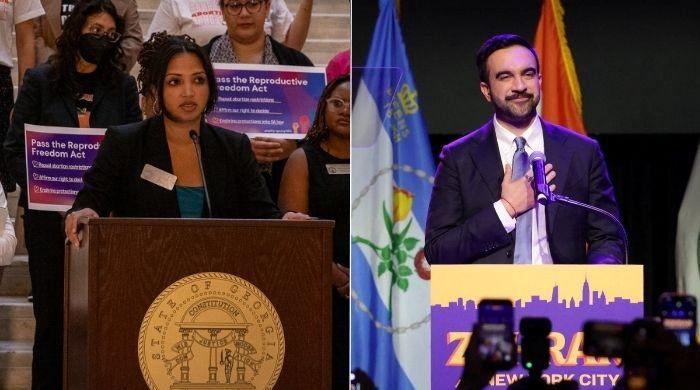
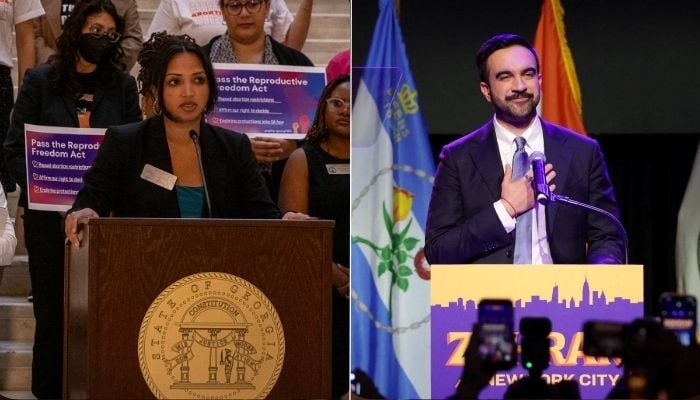
WASHINGTON: Nabilah Islam Parkes, a Muslim-American Senator from US state of Georgia, has shared a humorous exchange with her mother following Zohran Mamdani’s historic victory in New York’s mayoral race.
The 34-year-old democratic socialist made history by becoming the first Muslim mayor of the largest US city, defeating Democratic former Governor Andrew Cuomo.
“My mom: why can’t you be Mayor like Zohran?” Parkes wrote on X, adding that her mother dismissed her current position as a state senator as “not good enough.”
Parkes, who represents Georgia’s 7th District, said the comment initially left her irritated but eventually made her smile.
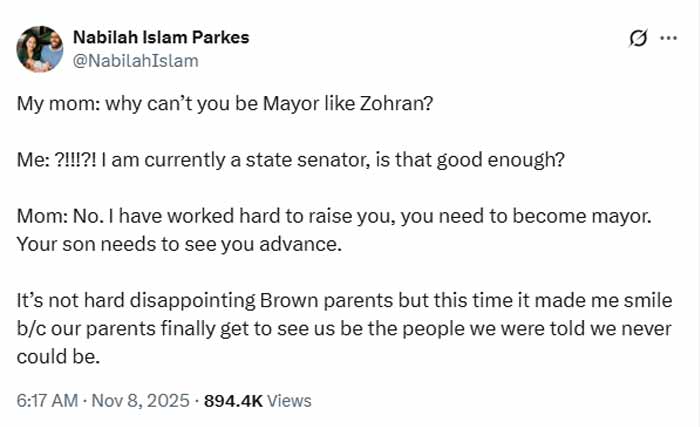
“It’s not hard disappointing Brown parents,” she wrote, “but this time it made me smile because our parents finally get to see us be the people we were told we never could be.”
The post resonated widely across social media, particularly among South Asian and Muslim communities, where children of immigrants often relate to similar family expectations.
Born in Uganda, Mamdani moved to the US in 1998 when he was 7 and became a US citizen in 2018.
Mamdani’s victory capped one of the city’s most closely watched elections in years. More than two million New Yorkers voted — the highest turnout in over half a century — giving Mamdani, a lead of around 9%.
Throughout his campaign, Mamdani faced harsh criticism from conservative media commentators and also from US President Donald Trump over his policies and Muslim heritage.
The democratic socialist has inspired waves of pride among immigrant families in both the United States and abroad.
Politics
China grants exemptions to export curbs on Nexperia chips for civilian use
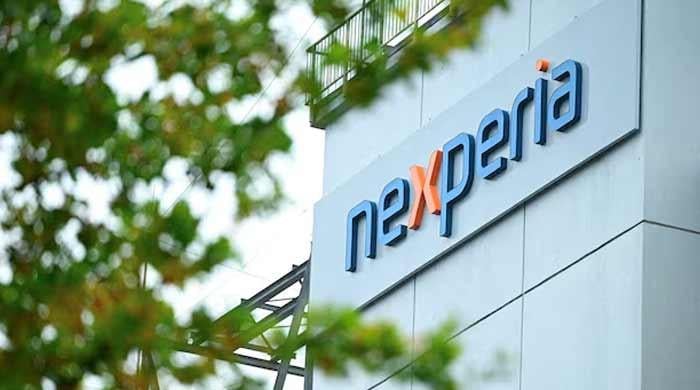
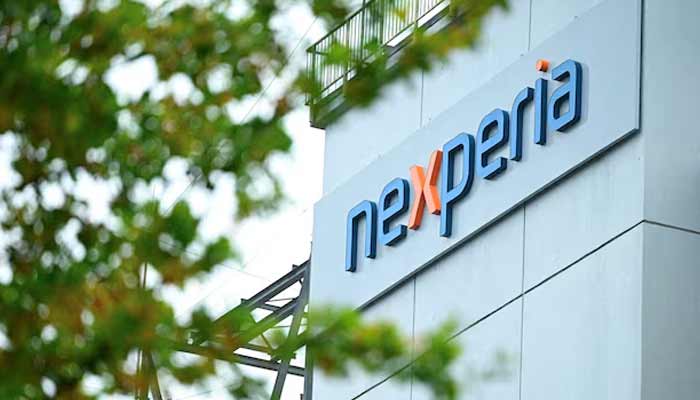
China has granted exemptions to export controls on Nexperia chips for civilian applications, the commerce ministry said on Sunday in a move that will help to relieve supply shortages for carmakers and automotive suppliers.
The announcement is the strongest signal yet from Beijing that it will ease pressure on the global auto industry caused by export curbs imposed after the Dutch government took control of Nexperia, a large manufacturer of basic chips used in automotive electrical systems.
Nexperia is based in the Netherlands but owned by the Chinese company Wingtech.
China’s commerce ministry did not specify what it considered to be civilian use, but its announcement follows statements from German and Japanese companies saying that deliveries of Nexperia’s Chinese-made chips had resumed.
Nevertheless, bilateral ties between China and the Netherlands, and by extension the European Union, are likely to remain strained until the dispute over Nexperia’s ownership and operations is resolved.
The Dutch government took control of Nexperia on September 30, saying that Wingtech was planning to move the company’s European production to China and that this would pose a threat to European economic security.
China responded by cutting off exports of the company’s finished chips, which are mostly packaged in China, though it said last week that it would begin accepting applications for exemptions after a meeting between US President Donald Trump and Chinese President Xi Jinping on October 30.
China’s commerce ministry has repeatedly said it was protecting global chip supply chains while the Netherlands was failing to take action to resolve the dispute.
The ministry’s statement on Sunday said that China hoped the EU would “further intensify” efforts to urge the Dutch side to revoke its seizure of Nexperia.
“China welcomes the EU to continue leveraging its influence to urge the Netherlands to promptly rectify its erroneous actions,” the ministry added.
Politics
Syrian president arrives in US for landmark visit
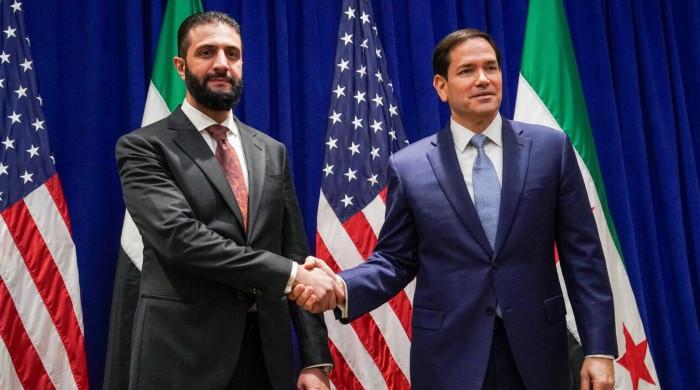
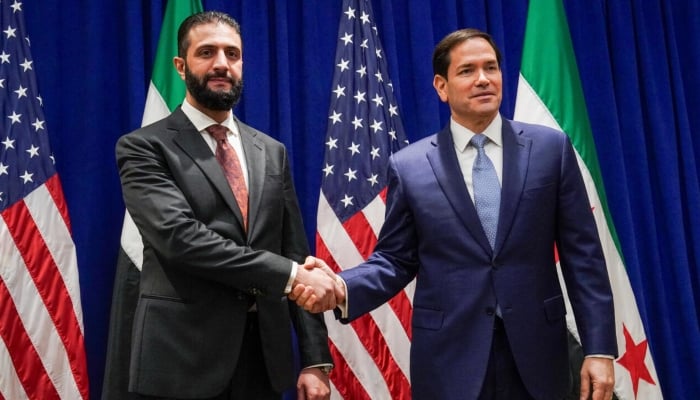
- First Syrian presidential US visit since 1946.
- Trump–Sharaa White House meeting set for Monday.
- US hopes Syria joins coalition against Daesh.
WASHINGTON: Syria’s President Ahmed al-Sharaa arrived in the United States on Saturday for a landmark official visit, his country’s state news agency reported, a day after Washington removed him from a terrorism blacklist.
Sharaa, whose rebel forces ousted longtime ruler Bashar al-Assad late last year, is due to meet US President Donald Trump at the White House on Monday.
It’s the first such visit by a Syrian president since the country’s independence in 1946, according to analysts.
The interim leader met Trump for the first time in Riyadh during the US president’s regional tour in May.
US envoy to Syria Tom Barrack said earlier this month that Sharaa would “hopefully” sign an agreement to join the international US-led alliance against Daesh.
The United States plans to establish a military base near Damascus “to coordinate humanitarian aid and observe developments between Syria and Israel”, a diplomatic source in Syria told AFP.
The State Department’s decision Friday to remove Sharaa from the blacklist was widely expected.
State Department spokesman Tommy Pigott said Sharaa’s government had been meeting US demands, including on working to find missing Americans and on eliminating any remaining chemical weapons.
“These actions are being taken in recognition of the progress demonstrated by the Syrian leadership after the departure of Bashar al-Assad and more than 50 years of repression under the Assad regime,” Pigott said.
The spokesman added that the US delisting would promote “regional security and stability as well as an inclusive, Syrian-led and Syrian-owned political process.”
Transformation
Sharaa’s Washington trip comes after his landmark visit to the United Nations in September — his first time on US soil — where he became the first Syrian president in decades to address the UN General Assembly in New York.
On Thursday, Washington led a vote by the Security Council to remove UN sanctions against him.
Formerly affiliated with Al-Qaeda, Sharaa’s group, Hayat Tahrir al-Sham (HTS), was delisted as a terrorist group by Washington as recently as July.
Since taking power, Syria’s new leaders have sought to break from their violent past and present a moderate image more tolerable to ordinary Syrians and foreign powers.
The White House visit “is further testament to the US commitment to the new Syria and a hugely symbolic moment for the country’s new leader, who thus marks another step in his astonishing transformation from militant leader to global statesman,” International Crisis Group US program director Michael Hanna said.
Sharaa is expected to seek funds for Syria, which faces significant challenges in rebuilding after 13 years of brutal civil war.
In October, the World Bank put a “conservative best estimate” of the cost of rebuilding Syria at $216 billion.
-

 Tech1 week ago
Tech1 week agoDisney content has gone dark on YouTube TV. Here’s what customers should know
-
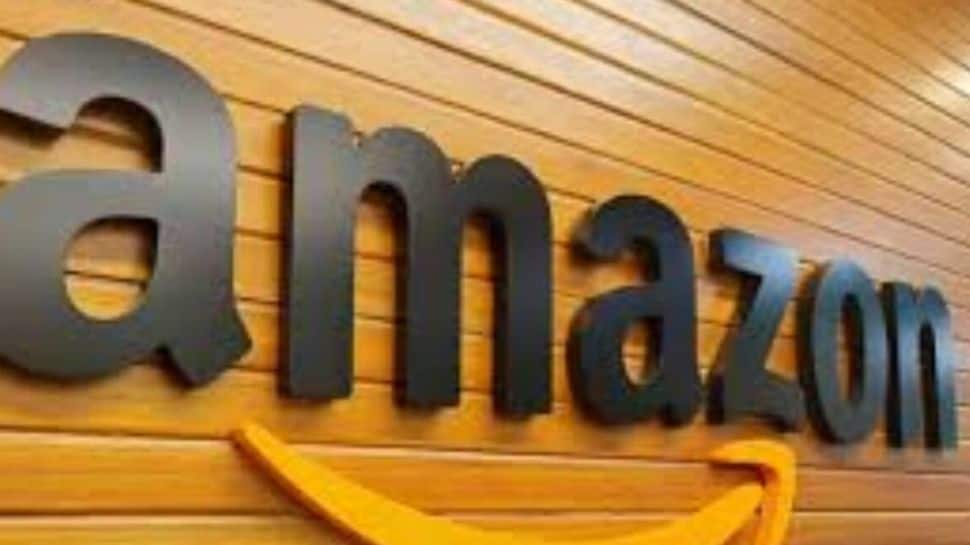
 Business1 week ago
Business1 week agoAndy Jassy Reveals Real Reason Behind Amazon 14,000 Job Cuts — And It’s Not AI
-

 Sports1 week ago
Sports1 week agoTudor’s Juve exit means McKennie must prove himself all over again
-
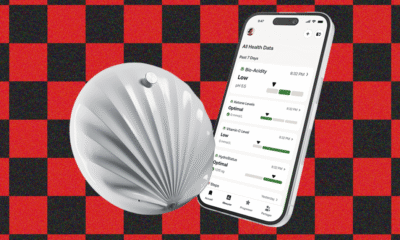
 Tech1 week ago
Tech1 week agoGear News of the Week: Withings Launches Its Pee Scanner, and Samsung Shows Off a Trifold Phone
-

 Fashion1 week ago
Fashion1 week agoIndia’s Raymond Lifestyle Ltd’s Q2 FY26 revenue rises 8% to $211.5 mn
-
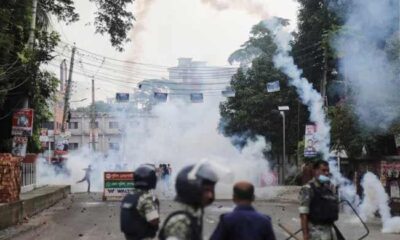
 Politics1 week ago
Politics1 week agoPolitical violence kills almost 300 since Hasina’s fall: rights group
-

 Politics1 week ago
Politics1 week agoIran vows to rebuild nuclear sites ‘stronger than before’
-
Sports1 week ago
Goals remain MIA for Capitals, who drop their third straight






